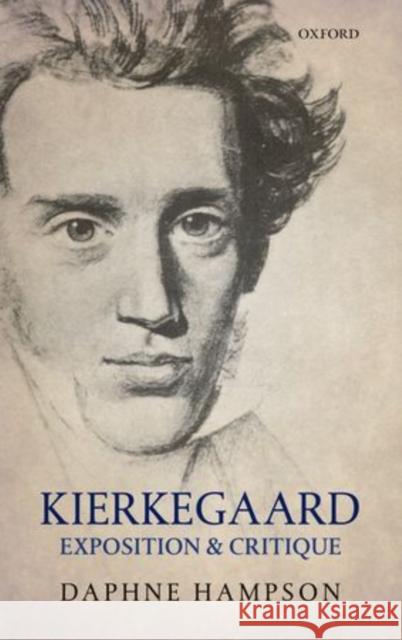Kierkegaard: Exposition & Critique » książka
Kierkegaard: Exposition & Critique
ISBN-13: 9780198723219 / Angielski / Miękka / 2014 / 364 str.
Kierkegaard is a fascinating author. Living shortly after the dawn of modernity in the Enlightenment, he restates classical Christianity in dynamic fashion. His Lutheran heritage is vital here as he places 'faith' over against 'reason'. Yet Kierkegaard also holds decidedly pre-modern epistemological presuppositions that are supportive of his endeavour.
After an initial chapter on Kierkegaard's intellectual milieu, the book expounds with reference to their philosophical and historical context seven of his major texts, ranging over theological, ethical, social and political questions. A final chapter, on an autobiographical text, allows of an estimate of Kierkegaard as a person.
The book does not however simply depict Kierkegaard. In the 'Critique' with which each chapter concludes Hampson carries on a lively debate with Kierkegaard. Questions range from his indifference to biblical historical criticism, his lack of a sense for causality and for the regularity of nature, and his early a-political outlook.
Whatever one's theological evaluation, Kierkegaard has insights that are abiding; into the nature of the self in relation to God, the manner of according dignity to others, and the need to prioritise rightly in life. Quoted extensively in this book, Kierkegaard, a writer of distinction, enthrals the reader with his flair, wit and never failing perspicacity.
A provocative and original book, while accessible to those approaching these texts for the first time, it should also be of interest to the seasoned Kierkegaard scholar, illuminating as has no previous work the importance of comprehending the structure of Lutheran faith for grasping Kierkegaard's thought.











